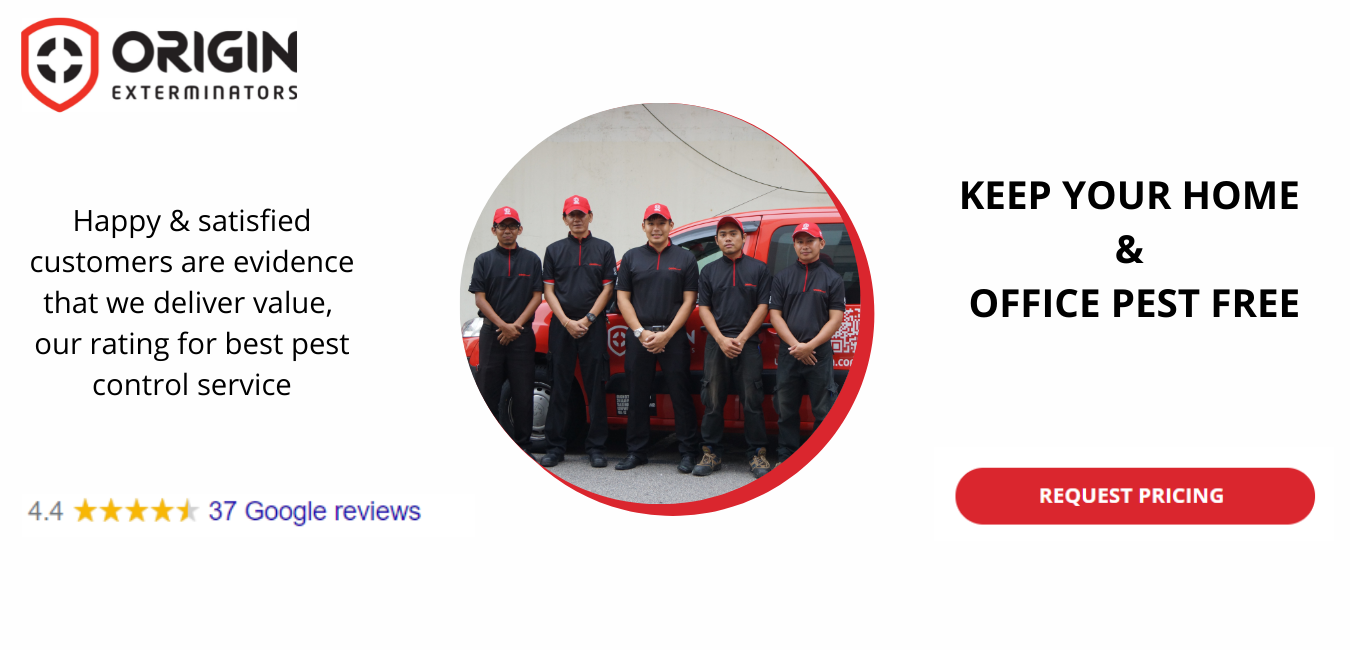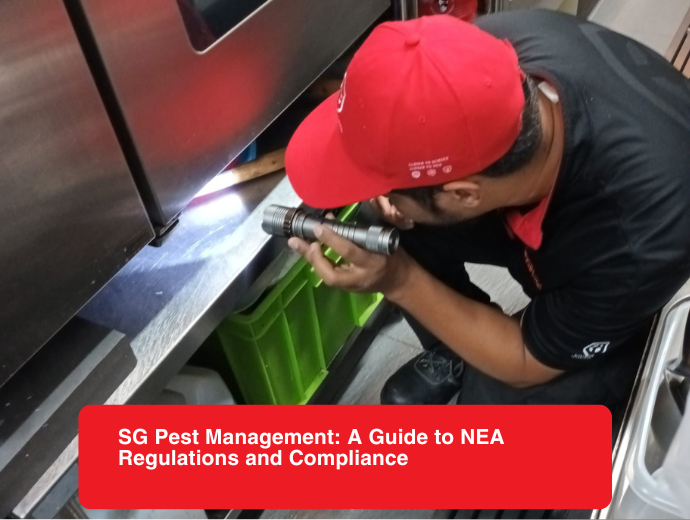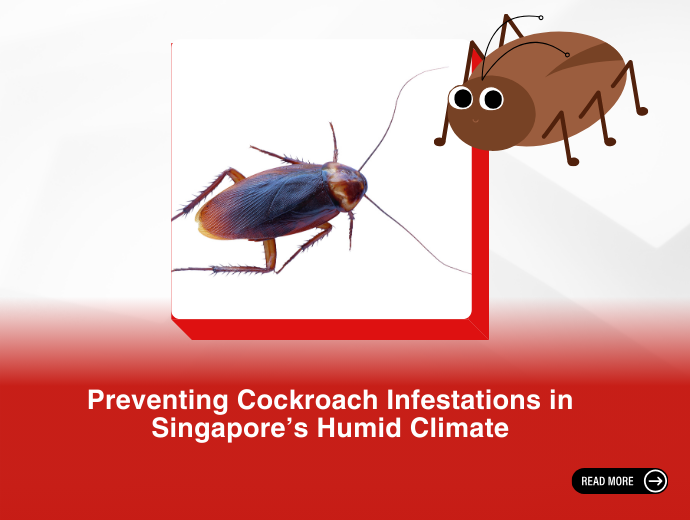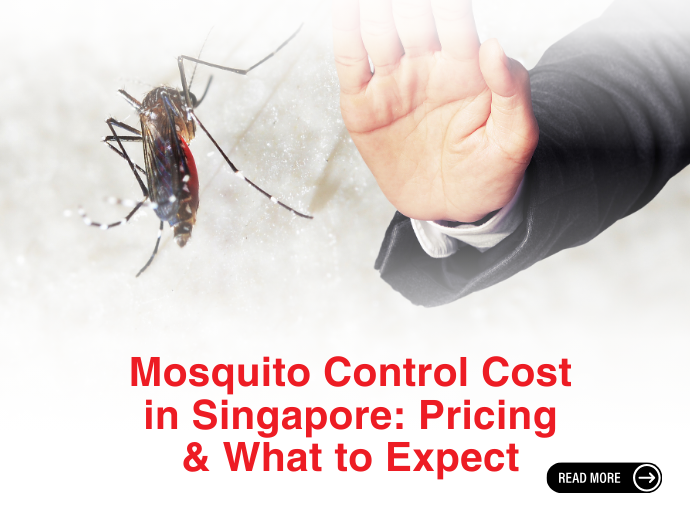Often, in SG pest management is considered with the sole aim of eliminating pests. However, in reality, it’s beyond that. In Singapore, where the climate and environment support pest population growth, the government is strict about pest control for public health, regulatory compliance, and the reputation of the business. Regulatory compliance is made mandatory for both residential and commercial complexes.
The National Environment Agency (NEA) was established to ensure the enforcement of these rigid regulations across the island. These regulations are applicable to everyone, whether you’re a business owner, facility manager, or even homeowner. It’s a must to understand these regulations and maintain a pest-free environment.
Let’s understand the importance of SG pest management, look into the highlights, and look at some practical tips on how one can be compliant with the said requirements.
Why in SG Pest Management is Important ?
As mentioned above, Singapore offers the best environment for pests to populate due to its strategic location, ever-growing population, and logistics hub. It not only invites various kinds of pests into the island but also offers them food and shelter to grow and multiply.
Some of the common pests found in Singapore are:
- Mosquitoes—These spread vectors of dengue and other diseases.
- Cockroaches—They are commonly found near food establishments and waste disposal, causing panic, reputational damage, and all kinds of diseases.
- Rodents—They not only carry deadly diseases but are also known to damage property, threaten the overall hygiene and food safety of the establishment, and invite serious penalties.
- Termites—These are known as the silent destroyers of property. They eat wooden structures and fittings and are exposed only after the damage is done.
- Flies and ants—Spotting them in establishments indicates questionable sanitation, which can damage a business's reputation.
When these pests are left unchecked, they not only damage the business's hard-earned reputation but also result in health violations, food contamination, and, in the worst cases, even business closures. This is why NEA (National Environment Agency) steps in to provide a regulatory framework to protect public health and the environment.
The Role of the National Environment Agency in SG Pest Management
The leading body in Singapore, NEA, is responsible for maintaining public health and environmental hygiene; this includes pest control. It offers licensing, operational standards, and arranges inspections to make absolutely sure that pest control operators strictly adhere to the safety measures noted down by the authorities.
The NEA overlooks at:
- Licensing of pest control operators
- Surveillance and control of vector-borne diseases
- Regulation of pesticide use
- Public education and outreach
- Enforcement actions against non-compliance
Now, let’s have a look at some specific rules and expectations that NEA sets out.
NEA Licensing Requirements for Pest Control Operators
It’s mandatory for SG Pest management / pest control companies operating to obtain a licensing certificate from NEA. This is to ensure that they follow all the approved chemicals, proper treatment, and said procedures.
Requirements for a Pest Control Operator:
1—Company License: Pest control companies must apply for an NEA license to operate legally in Singapore.
2—Individual License: To be able to perform pest control, technicians must have a license under the Vector Control Technician Scheme.
3—Proper Training: Each technician must receive NEA-approved training that covers the safe handling of chemicals, application techniques, and pest identification.
4—Use of approved pesticides: It is mandatory to use only NEA-approved pesticides. Along with this, the usage must follow all the safety and dosage guidelines.
Engaging any unlicensed pest provider will invite legal action. By ensuring to do business with a professional pest control provider, one will not only have an effective treatment but will also protect occupants and the environment.
SG Pest Management for Food Establishments
Given the pests, food establishments are under rigid surveillance for pest control. The Environmental Public Health (Food Hygiene) Regulations note that every food establishment must adhere to sg pest management programmes to prevent any kind of infestation.
Key Requirements:
1: Regular Pest Inspections: The inspections must be conducted by a licensed pest control provider.
2: Pest-Proofing: Food establishments must regulate waste management, seal entry points, and install flyscreens or traps to keep pests away.
3: Record-Keeping: There must be well-maintained pest control reports and service logs for all future references and for NEA inspections.
4: Immediate Rectification: It is necessary to address any kind of pest activity immediately to avoid any enforcement actions.
Any failure to adhere to these key requirements will result in fines, suspension of license or public disclosure of hygiene lapse in the establishment on NEA’s website, thus affecting customer trust.
SG Pest Management in Construction & Public Spaces
All the vacant lots, construction sites and on-going drainage systems there become breeding grounds for pests, like mosquitoes and rodents. NEA addresses developers and building managers to implement vector control measures during all stages of construction.
For Construction Sites:
- Weekly Mosquito Breeding Inspection
- Proper Drainage of Water Accumulation
- Rodent Baiting and Monitoring
- Dustbin and Food Waste Management
NEA has the authority to issue SWOs (Stop Work Orders) to construction sites that pose a significant vector risk. The issue of SWOs will delay the completion of projects, adding additional costs to builders.
Vector Control & Dengue Prevention
The growing population of mosquitoes pose serious dengue concerns in Singapore. This is why NEA’s Dengue Prevention Programme instructs stringent mosquito control measures, especially in high-risk clusters.
What you need to know:
- Aedes Mosquito Surveillance—The NEA deploys Gravitraps in the affected areas and inspects breeding hotspots.
- 3-Step Mozzie Wipeout—It’s a must for individuals and premises to practice regular mosquito breeding prevention, including that of stagnant water.
- Fines for Breeding—Upon inspection, if breeding points are discovered, owners of the premises may face a fine or court action, even if the hotspots were unintentional.
To avoid any heavy fines or legal actions, residents and businesses should stay vigilant and avoid breeding points of mosquitoes, especially during peak dengue season.
NEA Guidelines for Pesticide Use for SG pest management company
The NEA regulates all pesticide applications, ensuring minimal harm to humans, non-target species, and the environment.
Key Regulations:
- Must use only NEA-approved pesticides, insecticides, rodenticides, and fogging agents.
- Strictly follow instructions on labels, especially for dosage and application frequency
- Avoid any application in sensitive areas, such as schools, childcare centres, and elderly homes, without any proper notification or safety measures.
- Properly store and dispose of chemicals to prevent any kind of leakage or misuse.
Any breach of pesticide use regulations will result in the revocation of the license, penalties or public safety issues.
NEA Inspections & Enforcement for SG pest management
The NEA conducts routine inspections of all residential, commercial and industrial premises. These inspections have a prime focus on:
- Pest activity and breeding sources
- Sanitation practices
- Pest Control Service Records
- Compliance with pesticide application standards
Common Enforcement Actions:
- Warning Notices
- Fines & Demerit Points
- Public Health Offences Prosecution
- Stop Work Orders, in case of severe breaches
To avoid any enforcement actions, it is critical to maintain accurate documentation, including service reports, inspection records, and pesticide usage logs, to demonstrate compliance during any kind of inspections.
Working with Professional SG Pest Management Partner
It’s critically important to choose the right SG pest management provider for long-term success. A reputable company not only resolves immediate issues but also supports regulatory compliance, sustainability goals, and preventive strategies.
How ORIGIN Exterminators Can Help?
ORIGIN Exterminator is a NEA-licensed pest control provider. Its been operating in Singapore for just over 50 years. Additionally, we are backed by science, data, and decades of experience in the field. ORIGIN has seen the country change and adapt and with it too, ORIGIN has evolved, adapted and understands intimately the needs of businesses in Singapore and Singaporeans. Our approach includes:
- Detailed site inspection with photo documentation
- Use of eco-friendly and NEA-approved chemicals and products
- Digital reporting and trend analysis for audit readiness
- Integrated Pest Management (IPM) customised to meet business and environmental needs
Conclusion:
In SG Pest management is more than just dealing with the visible infestation, it is about proactively preventing them from happening, maintaining regulatory compliance, and adhering to the safe and healthy environment guidelines set up the authorities. The NEA guides the industries, businesses, and homeowners on how to uphold high hygiene standards.
It is only possible by staying alert and working with professionals, such as ORIGIN Exterminators, that you can ensure that your pest management strategies are fully aligned with Singapore’s regulations. Contact us today!




.png)
